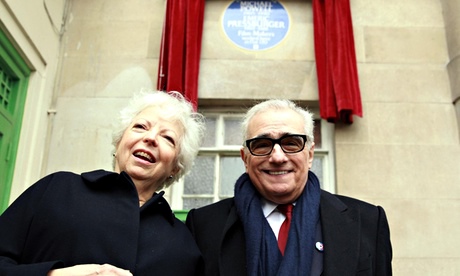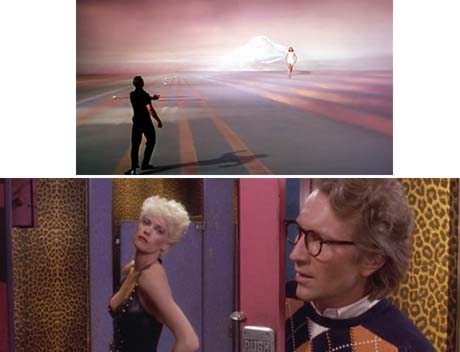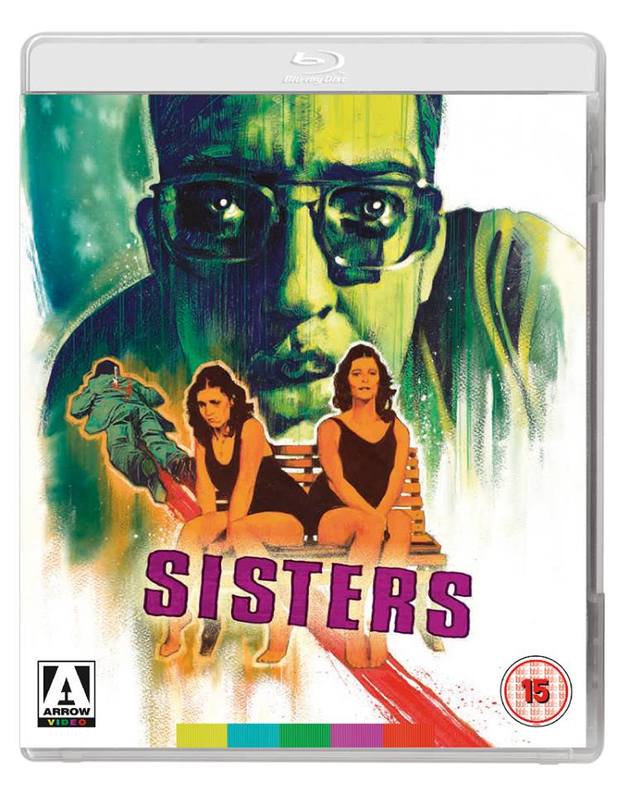'PHANTOM' ARROW BLU-RAY REVIEWS
OFFICIALLY RELEASED TODAY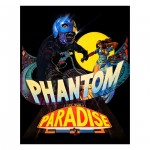 Arrow Video
Arrow Video's Blu-ray of
Brian De Palma's
Phantom Of The Paradise is released today, and the reviews are popping up. Here are some excerpts:
Michael Flett, Geek Chocolate"Despite the modest budget of an independent picture, De Palma’s direction is kinetic, the choices of lenses and angles unorthodox, everything emphasised as befits the spectacle of a rock opera, with glorious colour vibrant beneath the spotlights, though director of photography
Larry Pizer states his favourite moment is quieter, the rooftop scene during the reprise of the showstopping
Old Souls as the Phantom spies Swan and Phoenix through the skylight, the rain representing the tears his damaged eyes cannot shed...
"That song is singled out as 'one of my favourites… of my whole catalogue' by Paul Williams in an extended interview conducted by friend by Guillermo del Toro, who is very open about his highs and lows of his career. Now clean and sober since 1990, he comments that 'you know you’re an alcoholic when you misplace a decade,' joking that the only thing he recalls about the eighties is 'the intentionally bad songs for Ishtar,' but stating he is now 'passionate about recovery and passionate about creator’s rights,' he could not be more different from the character her portrays."
Peter Turner, Filmoria
"It’s an enthusiastic early directorial effort from the director who would later tone down the excess but rarely be better. It riffs on Faust, Phantom of the Opera, The Picture of Dorian Gray and in one silly send up, even Hitchcock’s Psycho. It’s packed with nicked ideas and wonderfully inventive technical showmanship and builds to a frenetic climax of colour, light, bright red blood and murder. The story might be cobbled together from all sorts of clear influences but the style is original and way ahead of its time. Even after forty years, Phantom of the Paradise is still fresh, frantic and funny...
"Extras... Guillermo del Toro interviews Paul Williams with the pair sharing a wonderful rapport. del Toro is in awe of his friend Williams and draws out some fascinating revelations from his subject. It’s over an hour long and only very occasionally cuts to clips from the film. Mostly it is two outsiders who clearly share a strong bond talking about a movie they both have a lot of love for."
Rob Munday, Front Row Reviews
"What is our problem with Brian?
"Brian De Palma is one of the best directors to emerge from the New Hollywood rejuvenation of the 1970s yet still he seems to be treated like an errant little brother who refuses to shut up and leave the train set alone. Perhaps it is the broadly drawn characters, the refusal to be constrained by realism, the joy in playing with the possibilities of cinema. His career may be patchy but anybody who has made Greetings, Carrie, Blow Out, Scarface, Carlito’s Way and Redacted deserves some props. The fact is there’s no one else you’d rather direct the prog-rock fandango that is Phantom of the Paradise...
"Histrionics take centre stage here, pushing promising characters into the wings, and bending the plot to fit the tune. But De Palma brilliantly handles the overblown, creating a dizzying blend of prog-rock tragedy with the virtuoso work of Jack Fisk (production design), Larry Pizer (director of photography), and Paul Hisch (editing), making you believe that maybe this is what New York was really like in 1974.
"The Blu-ray vividly captures the fantastic visuals and grandiose music that makes this as close to Giallo as American films ever got. Dario Argento would later use Harper in Suspiria, and the feeling lingers that De Palma remains the greatest Italian genre director that never was.
"As the extras on this edition detail the film was hampered by a number of lawsuits with the most damaging involving the use of the Swan Song records name (Led Zeppelin got there first) that meant considerable compromise in the final edit (ironic for a film that champions unfettered invention in the face of corporate power). Despite this it remains ripe for re-discovery. Before The Rocky Horror Picture Show, before Little Shop of Horrors, this bombastic melodrama went balls-out in the face of mediocrity."
Dr. Svet Atanasov, Blu-ray.com
"Written and directed by Brian De Palma, Phantom of the Paradise is a terrific piece of psychedelia. It is colorful, wild, mesmerizing, frustrating, kitschy, hilarious, odd and beautiful. It is also a musical of sorts - one that bends forms and styles in such a wicked fashion that one must wonder what was going on in director De Palma's life when he shot the film...
"De Palma's Phantom of the Paradise reminded me of American expatriate William Klein's Mister Freedom. Both films allow for two profoundly different reads of their stories - one where the audience isn't required to pay close attention to the numerous references they contain, and another where reading between the lines is essential. Both films also seem fairly comfortable with the idea that kitsch allows for great storytelling so long as at the end the kitsch is somehow rationalized. In Klein's film the kitsch is used to effectively criticize America's imperialistic ambitions; in De Palma's film the kitsch is used to satirize the showbiz.
"The flavor of the kitsch in Mister Freedom, however, differs considerably from the one present in Phantom of the Paradise. In Klein's film the exaggerations are blunt and frequently quite vulgar. As a result, the main protagonist is impossible to like; the political overtones in the film are also extremely easy to detect.
"In Phantom of the Paradise the main protagonist is so weak that once he begins to suffer it becomes quite easy to feel for him; he is the ugly duckling that no one wants. Yet instead of embracing him De Palma proceeds to exploit his misery, thus ensuring that Phantom of the Paradise does not evolve into a cliched soap opera.
"Visually, Phantom of the Paradise is overwhelming. What takes place on the screen has to be seen to be believed. During the film's final act it literally feels as if De Palma demanded everyone to go berserk in front of the camera, just like Fellini did in a few of his films. The only difference here is that Phantom of the Paradise lacks the grace and elegance of Fellini's films which, arguably, is precisely what makes it so special...
"I have mixed feelings about this new release of Phantom of the Paradise. Its basic characteristics are unquestionably superior to those of French label Opening Distribution's release, which we reviewed in 2010. Indeed, grain is better resolved, dirt and specs have been carefully removed, and the encoding is superior. The color timing and contrast balance of this new release, however, are drastically different. In fact, the discrepancies between the two releases are so big that when comparing the two it actually feels like they enhance entirely different qualities -- the look of the French release supports the kitschy qualities of De Palma's film, while Arrow's release supports the film's lusher musical qualities. Generally speaking, on the Arrow release there is a much wider range of well saturated browns and yellows, which appear to have replaced a good range of nuanced reds/pinks that are prominent on the French release (compare screencapture #1 with screencapture #4 from our review of the French release). The contrast and brightness settings are also different. As a result, the film looks darker but also lusher (screencapture #6 with screencapture #2 from our review of the French release). However, not knowing whether the new color scheme has been in any way approved or endorsed by director De Palma, one will have to rely on one's instincts to choose the 'correct' version of the film. My feeling is that the color adjustments performed at Fox are too strong...
"Special Features and Extras:
"Guillermo del Toro Interviews Paul Williams - in this wonderful new video interview, acclaimed Mexican director Guillermo del Toro and Paul Williams (Swan) discuss the actor's fascination with music and cinema, the production history and style of Phantom of Paradise, the mystery of Swan, etc. r. Williams also talks about his alcohol addiction, making Ishtar, artist rights, and the importance of following your creative instincts. In English, not subtitled. (73 min)."
Mike Pereira, Bloody Disgusting
"I’ve been a Brian De Palma advocate ever since I first laid eyes on the iconic Scarface and soon after Carrie. Whether you like his stuff or not, De Palma’s majestic approach to filmmaking is cinema at its absolute purest. After the trend-setting techniques established by the brilliant Alfred Hitchcock (which he’s frequently been accused of being nothing more than a carbon copy of), this polarizing artist has continued on that fine tradition and in my opinion, took that cinematic language into new majestic heights. The horror/musical Phantom of the Paradise which he also wrote is a clear standout among his filmography. Sure, it contains his signature visual style and bag of tricks (split screen and POV shots aplenty) yet by operating in the musical realm, De Palma is liberated to take his operatic tendencies to new places. It’s a match made in heaven...
"As with most musicals, everything is played in broad strokes on just about every level. Phantom of the Paradise plays it big yet by doing that it somehow connects the viewer to its main character’s plight and the potent themes being explored more so. The filmmaker is greatly assisted by his terrific cast who play their parts with conviction...
"De Palma gets consistently discredited for his reliance on style over substance. His work can consistently be enjoyed for its superior craftsmanship however in much of his finer work you can see a genuine personal connection to the material. A chunk of his films like Blow Out, Snake Eyes, The Untouchables, Casualties of War, The Fury are about his protagonist’s valiant yet seemingly futile, obstacle-ridden crusade to unravel an ominous, corrupt system. Phantom of the Paradise is no different and might very well be the best, most poignant example of this. While De Palma is clearly taking aim at the music and film industry, it’s easy to connect this satire with corporate greed in general. All of these elements are sadly still every bit as vital today which makes Phantom of the Paradise as effective today. Strip all that subtext away and you still have one feverishly fun horror/tragicomedy. De Palma is clearly having [a] blast. He packs this wild romp with unfettered imagination, not to mention some clever nods to his influences (Psycho and The Cabinet of Dr. Caligari fans will no doubt be amused) for good measure. Phantom of the Paradise is still far and away my favorite musical of all time and having it work on a horror level as well makes it all the more endearing to me.
"The A/V
"The video is very different than the one found on the French Blu-ray release. This latest transfer shows more information in the frame, presents much warmer colours and what may cause some debate; a darker appearance. The contrast is strong and at times can swallow up some of the background detail. It never gets to the point of distraction in my opinion but I can see many being bothered by this. As for the sharpness, the video is every bit as good as the French release. The print is also in great shape, the cleanest it’s ever been. Now I haven’t seen the film during its theatrical presentation so I can’t say if this is what De Palma had intended or. Overall though, I find this transfer to be the most visually striking to date. With the deeper contrast and gorgeous colourization, De Palma’s stylish aesthetic stands out like never before.
"While the video might rattle some feathers, the audio definitely won’t. Arrow presents the original 4-Track Stereo Mix in all its lossless glory. Williams’ memorable soundtrack has never sounded so good. Also, the bass channel packs more punch than I could have ever imagined. There is also a very fine 2.0 Stereo PCM track but it never quite matches the more engaging DTS-HD 4.0 Master Audio."
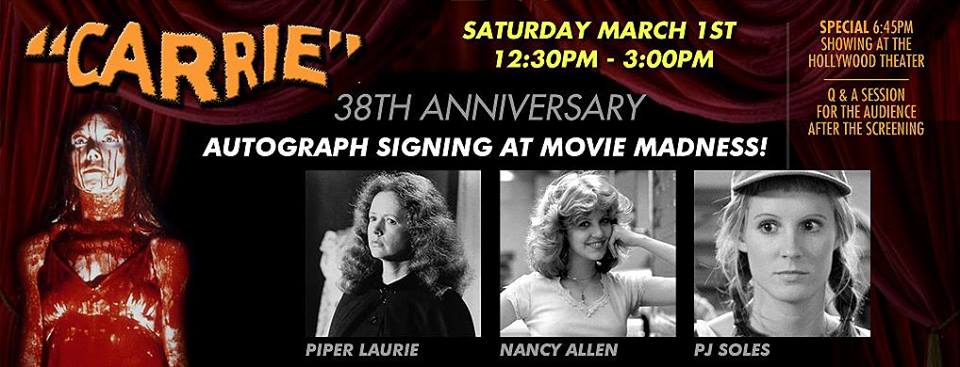





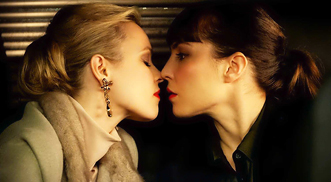 Brian De Palma's Passion will be included as part of a film series at the
Brian De Palma's Passion will be included as part of a film series at the 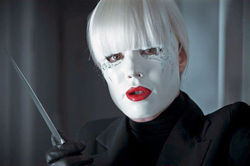
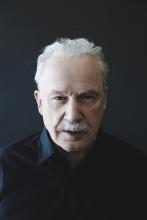 Giorgio Moroder will introduce a special screening of Brian De Palma's Scarface, for which he composed the score and songs, at the 2014
Giorgio Moroder will introduce a special screening of Brian De Palma's Scarface, for which he composed the score and songs, at the 2014 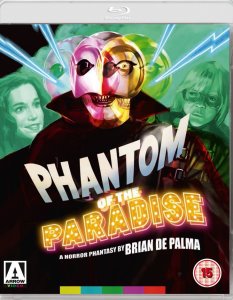 In a review for Arrow's new Blu-ray of Brian De Palma's Phantom Of The Paradise,
In a review for Arrow's new Blu-ray of Brian De Palma's Phantom Of The Paradise, 
